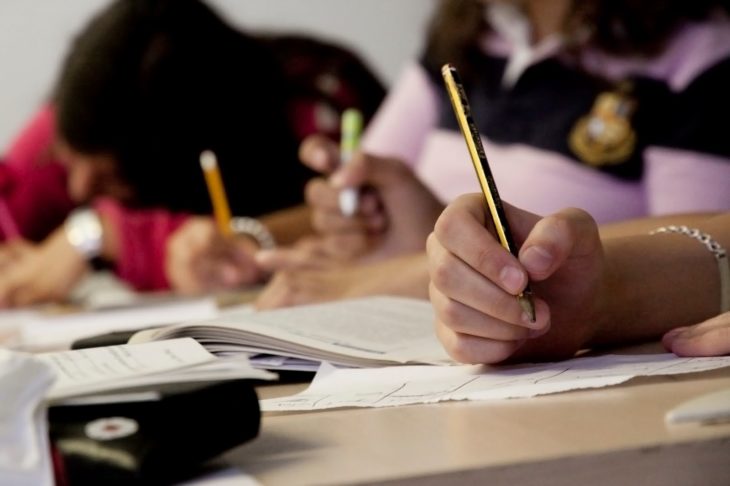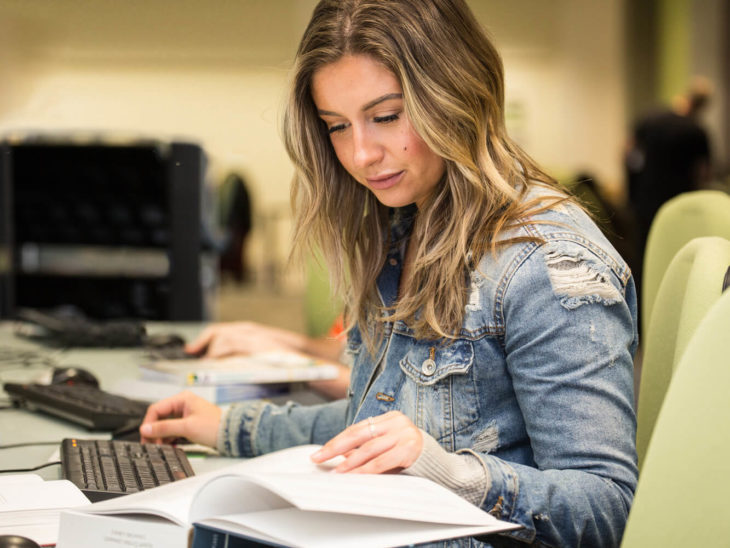Whether you’re getting ready for a History final in college or a CPA exam to finally earn that accounting certification, you’ll need to study hard if you want to be successful. The idea behind studying is simple; review some information, work to retain it, and maximize your chances of producing that information come test day. But there are many ways that studying can go wrong.
Fortunately, with a proactive approach, you can overcome the most common mistakes people make when studying.

Source: ameritech
Top 10 Studying Mistakes
These are some of the top mistakes made by people preparing for all types of exams.
- Starting too late. Most of the time, you’ll know the date of the exam with plenty of time to study. You should have the exam date in mind months ahead of time, or at least weeks. Don’t make the mistake of telling yourself “you have plenty of time” and avoiding studying. Instead, start as early as possible and put together a consistent studying regimen to follow.
- Cramming. Cramming is not a viable studying strategy. In case you aren’t familiar, cramming refers to the act of studying for long, intensive periods of time in the few days leading up to the exam, or in many cases, the night before. It’s much better to space out your studying and study for short, consistent periods of time.
- Not getting enough sleep. Did you know that sleep plays a major role in memory formation? You’ll be much more likely to remember what you study long-term if you get enough sleep on a nightly basis. Aim to get at least 7 hours of sleep every night in the weeks leading up to your exam, and make sure to get a good night’s rest the night before the exam.

Source: McREL International
- Not getting help when you need it. Most of us struggle with at least one aspect of exam preparation. But if you’re too proud or too stubborn to get help, you’ll have trouble overcoming that challenge. Instead, according to Wiley Efficient Learning, it’s better to sign up for an exam preparation course, or at least work with a study group to increase your chances of success.
- Studying alone exclusively. Studying alone has a lot of advantages. You can study the way you want. You can reduce all noise and distractions. You can review the material that’s most important to you. But by itself, you won’t get the full, well-rounded study experience most likely to lead to desirable results.
- Studying in groups exclusively. Similarly, studying in groups has a lot of advantages. You can ask critical questions and get help. You can review material you may have forgotten about. And you’ll remain consistent enough to follow the group’s meeting schedule. But again, by itself, you won’t get a well-rounded study experience. Make sure to study both alone and in groups.

Source: AdobeStock
- Using only one study technique. There are a lot of different study techniques out there, all of which have something to bring to the table. If you put all your eggs in one basket, so to speak, you’ll be denying yourself of all the different learning methods that could help you absorb your core material. For example, take flashcards; flashcards are a tried-and-true study technique that are perfect for reviewing terminology or remembering dates. But they’re not going to help you with extended response questions – and they’re not an efficient study tool if used exclusively.
- Studying the wrong material. Do you know what’s going to be on the exam? If you don’t, that should be your first priority. You don’t want to waste time studying something that’s not even going to be on the test and you don’t want to skip over something important. Find out what material the exam is going to cover, talking to your professors if necessary.
- Failing to take a practice exam. You feel like you know all the material, but how can you be sure you’ll recall it in a real environment? The only way to adequately prepare is to take a practice exam (or two).

Source: studybreaks
- Neglecting the stress of exam day. Did you know that most people experience at least some level of test anxiety? If you’re not careful, the stress and anxiety of test day could render your studying ineffective. Have a plan to manage your stress with careful day-of preparation, meditation, and other techniques.
Better Tips for Studying
You can overcome these studying mistakes and better equip yourself for long-term success with the following tips and strategies:

Source: RGU
- Be proactive. Be a proactive studier, rather than a reactive one. Get ahead of the issue by starting as soon as possible and working intentionally to learn the relevant information before the exam. The further ahead you work, the better.
- Put together a plan. Start with a formal plan of how you’re going to study and what you need to do to be adequately prepared for the exam. For example, how well do you need to know the important information before you take the exam? What’s your roadmap to getting there?
- Learn to recognize when something’s not working. Too many studies rely on inefficient or counterproductive strategies – and they can crop up without warning. Learn how to recognize when something’s not working; you’ll be in a position to correct your mistakes and try something new.
- Take care of yourself. You have to take care of your body and mind if you’re going to perform your best on the exam. Taking good care of yourself, by getting enough sleep, drinking enough water, and eating a healthy, balanced diet is a good way to start.

Source: FutureLearn
Finding Your Own Study Style
Different people can (and should) study differently. The techniques that work for one person may not work for another, and some people will naturally avoid some of the above mistakes by sheer virtue of their personality. It’s important to understand your own strengths, weaknesses, and personality traits so you can develop a “study style” that fits you perfectly.
